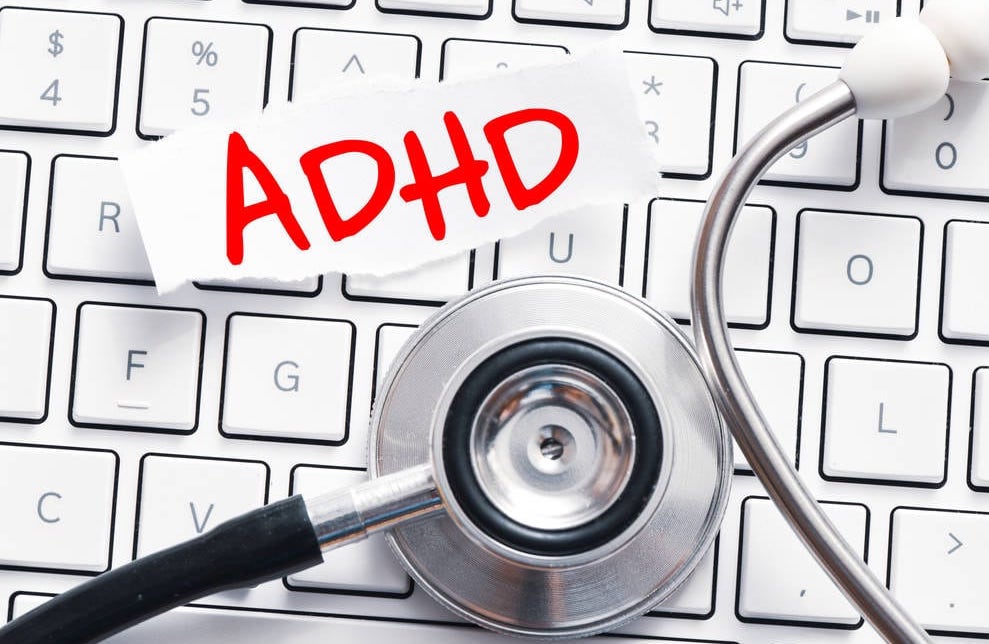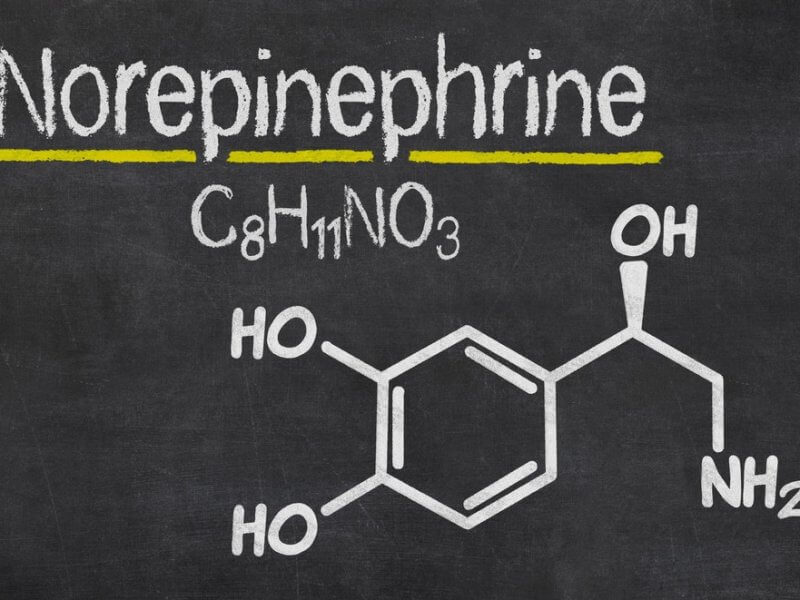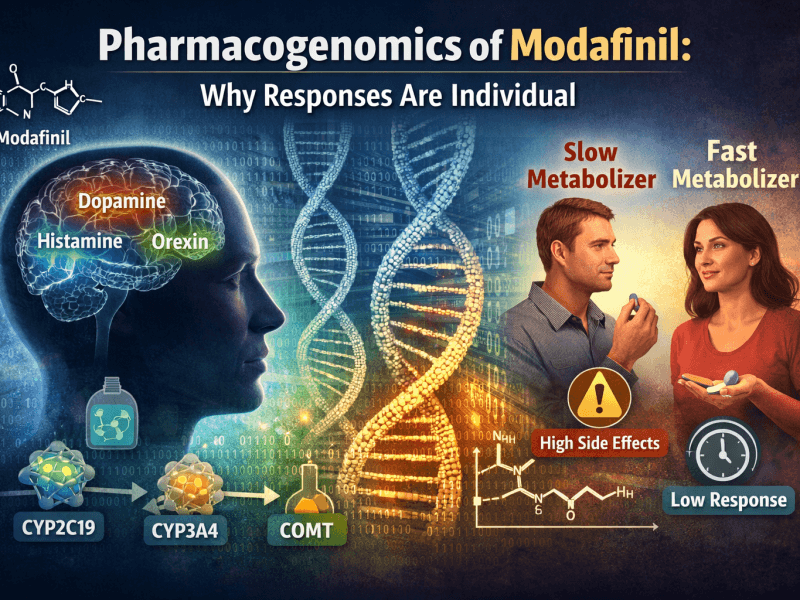Last Updated on 13/08/2025 by James Anderson
Introduction to Modafinil for ADHD & ADD
Attention Deficit Hyperactivity Disorder (ADHD) and Attention Deficit Disorder (ADD) are common neurodevelopmental conditions affecting millions worldwide. People with ADHD/ADD often struggle with focus, impulse control, and sustained attention, impacting both academic and professional performance. While traditional stimulant medications like Adderall and Ritalin have been standard treatments, interest in alternative medications has grown. Modafinil, a wakefulness-promoting agent, has emerged as a promising option.
Understanding ADHD and ADD
ADHD is characterized by inattention, hyperactivity, and impulsivity, whereas ADD generally refers to the inattentive subtype without hyperactivity. Symptoms include difficulty staying focused, disorganization, forgetfulness, and distractibility. These issues can severely affect daily functioning and long-term success.
The Role of Modafinil in Cognitive Enhancement
Originally developed to treat narcolepsy, Modafinil has shown significant cognitive-enhancing properties. It increases wakefulness, improves executive function, and reduces mental fatigue benefits that align closely with ADHD/ADD symptom management.
What Is Modafinil?
History and Development
Modafinil was first synthesized in the late 1970s by French scientists and approved for narcolepsy in the 1990s. Over time, its off-label use expanded to fatigue management, depression adjunct therapy, and ADHD.
Mechanism of Action
Modafinil influences several neurotransmitters, including dopamine, norepinephrine, and histamine, without the intense euphoria associated with classic stimulants. This reduces the risk of abuse while still enhancing alertness and focus.
Legal Status Worldwide
- United States: Schedule IV prescription drug.
- United Kingdom: Prescription-only medicine.
- Australia & Canada: Controlled substance requiring a doctor’s prescription.
How Modafinil Helps in ADHD & ADD Management

Comparison with Traditional ADHD Medications
Unlike Adderall or methylphenidate, Modafinil has a smoother onset, fewer side effects like jitteriness, and less risk of addiction.
Benefits Beyond ADHD Symptoms
- Enhanced memory retention
- Better decision-making under pressure
- Reduced mental fatigue during long tasks
Dosage Guidelines for Safe Use
Starting Dose Recommendations
A common starting dose is 100 mg per day, often adjusted after one week.
Titration and Adjustment
Dosages may range from 100-200 mg daily, depending on tolerance and effect.
Timing and Frequency
Modafinil is best taken in the morning to avoid insomnia.
Potential Side Effects and How to Minimize Risks
Common Side Effects
- Headache
- Nausea
- Dry mouth
Rare but Serious Risks
- Severe rash (Stevens-Johnson syndrome)
- Heart arrhythmias
Safety Precautions
Always consult a doctor before starting Modafinil, especially if you have heart conditions or mental health disorders.
Who Should and Should Not Take Modafinil
Suitable Candidates
- Adults diagnosed with ADHD who don’t tolerate stimulants
- People needing improved focus with minimal side effects
Contraindications
- Pregnant or breastfeeding women
- Individuals with severe cardiovascular issues
Best Practices for Using Modafinil Responsibly
Lifestyle and Diet Considerations
- Maintain good hydration
- Pair with a balanced diet rich in omega-3 fatty acids
Combining Modafinil with Other Treatments
May be combined with cognitive-behavioral therapy (CBT) for optimal results.
Alternatives to Modafinil for ADHD & ADD
Prescription Alternatives
- Atomoxetine (Strattera)
- Lisdexamfetamine (Vyvanse)
Natural and Non-Pharmacological Options
- Mindfulness meditation
- Regular aerobic exercise
FAQ
1. Is Modafinil FDA-approved for ADHD?
No, its use for ADHD is considered off-label in the U.S.
2. How quickly does Modafinil start working?
Typically within 30-60 minutes.
3. Can I take Modafinil every day?
Yes, under medical supervision, though periodic breaks may help prevent tolerance.
4. Is Modafinil addictive?
It has a lower addiction potential than traditional stimulants.
5. Can Modafinil be taken with coffee?
Yes, but limit caffeine to avoid overstimulation.
6. Does Modafinil improve memory?
Studies suggest it can enhance certain memory functions, especially under sleep deprivation.
Conclusion

Modafinil offers a unique, less addictive alternative for ADHD/ADD management, especially for individuals sensitive to traditional stimulants. While not a first-line treatment, its ability to boost focus, reduce fatigue, and enhance executive function makes it a valuable option under medical guidance.
‼️ Disclaimer: The information provided in this article about modafinil is intended for informational purposes only and is not a substitute for professional medical consultation or recommendations. The author of the article are not responsible for any errors, omissions, or actions based on the information provided.
References:
- Oliva Ramirez A, Keenan A, Kalau O, Worthington E, Cohen L, Singh S. Prevalence and burden of multiple sclerosis-related fatigue: a systematic literature review. https://doi.org/10.1186/s12883-021-02396-1 . 2021.
- Ciancio A, Moretti MC, Natale A, Rodolico A, Signorelli MS, Petralia A. Personality Traits and Fatigue in Multiple Sclerosis: A Narrative Review. Journal of Clinical Medicine. https://doi.org/10.3390/jcm12134518 . 2023
- Mereu, M., Bonci, A., Newman, A. H., & Tanda, G. The neurobiology of modafinil as an enhancer of cognitive performance and a potential treatment for substance use disorders. https://doi.org/10.1007/s00213-013-3232-4 . 2013
- U.S. Food and Drug Administration. PROVIGIL. U.S. Department of Health and Human Services. https://www.accessdata.fda.gov/drugsatfda_docs/label/2015/020717s037s038lbl.pdf . 2015
- Ballon JS, Feifel D. A systematic review of modafinil: potential clinical uses and mechanisms of action. J Clin Psychiatry. 2006
- Willavize, S. A., Nichols, A. I., & Lee, J. Population pharmacokinetic modeling of armodafinil and its major metabolites. https://doi.org/10.1002/jcph.800 . 2016
- ADHD: Clinical practice guideline for the diagnosis, evaluation, and treatment of attention-deficit/hyperactivity disorder in children and adolescents. https://www.ncbi.nlm.nih.gov/pubmed/22003063. 2011
- Arnold, V. K. A 9-week, randomized, double-blind, placebo-controlled, parallel-group, dose-finding study to evaluate the efficacy and safety of modafinil as treatment for adults with ADHD. Available at: https://www.ncbi.nlm.nih.gov/pubmed/22617860. 2012
- Clinical Pharmacology. Elsevier, Tampa, FL. Available at: http://www.clinicalpharmacology-ip.com. 2018


